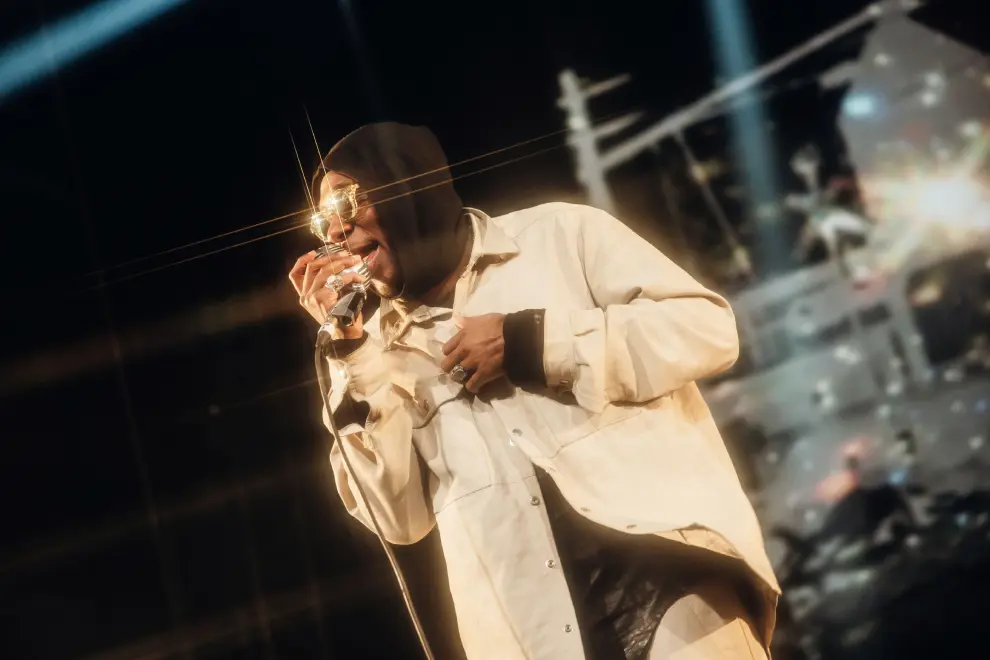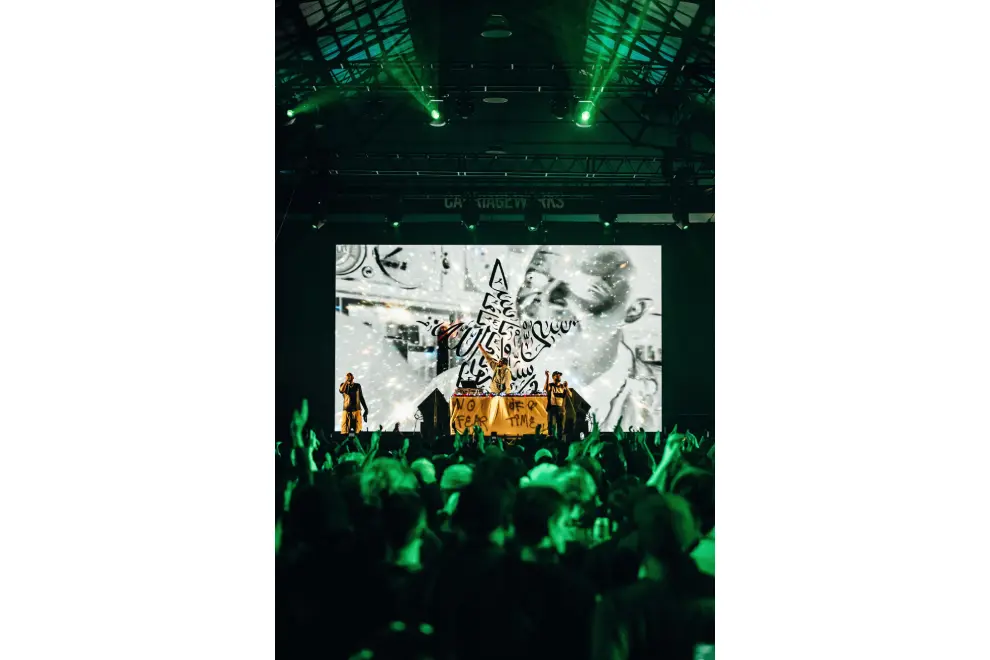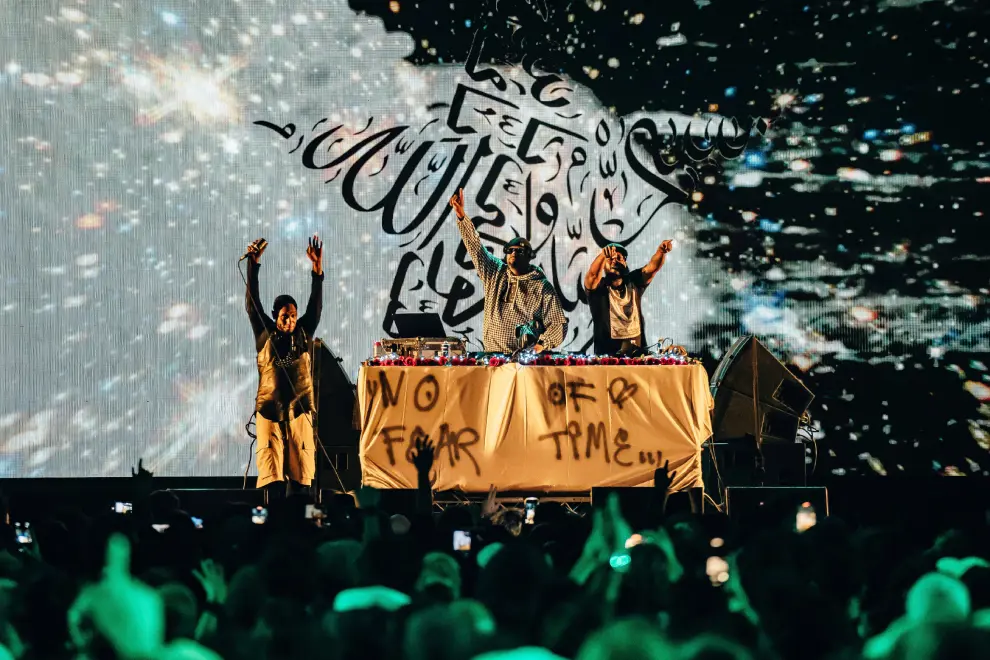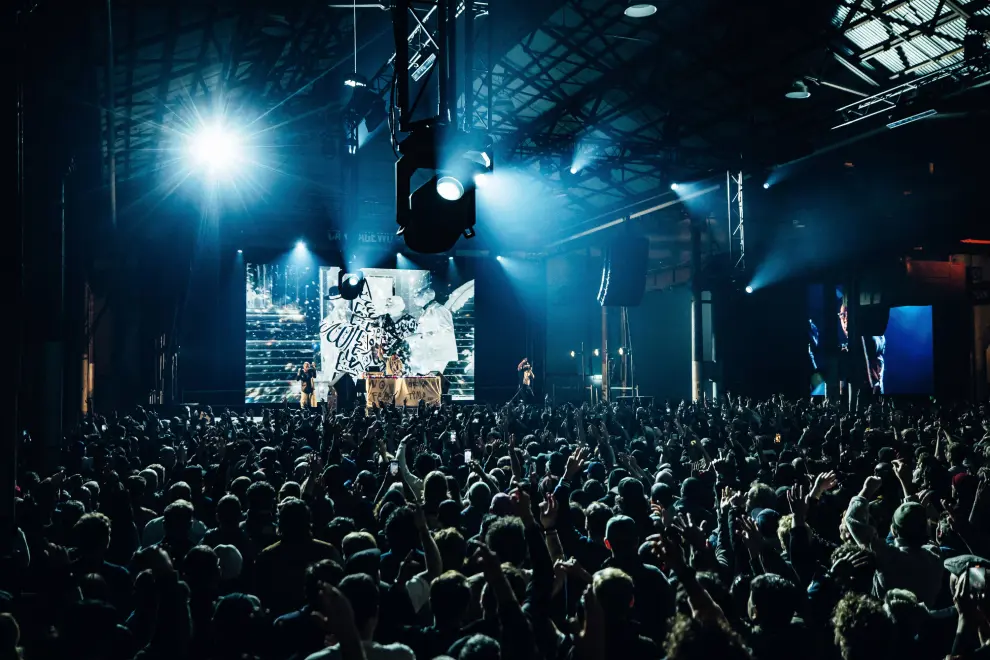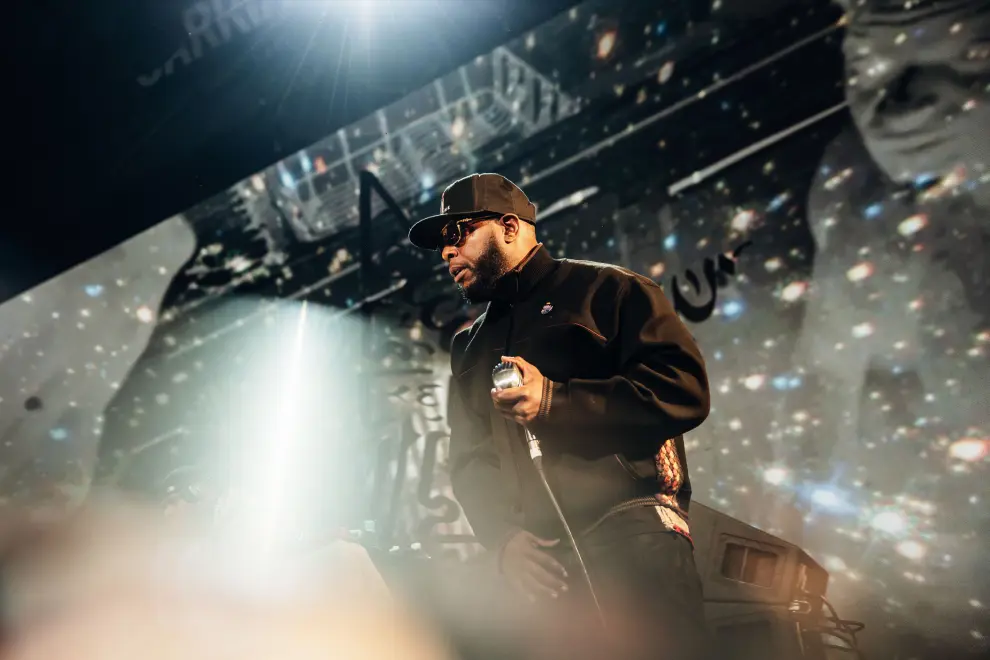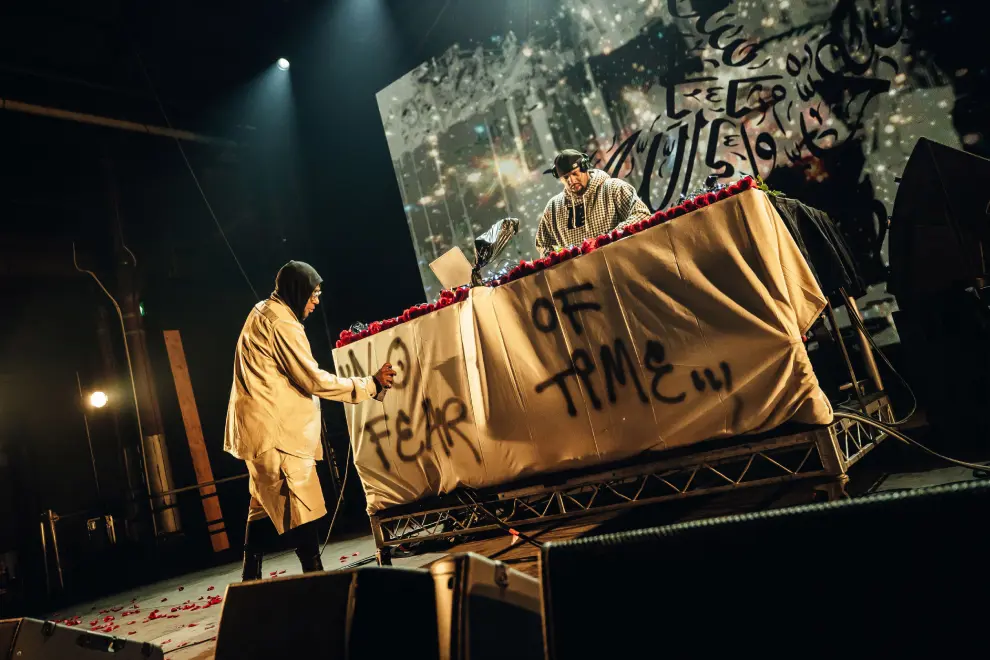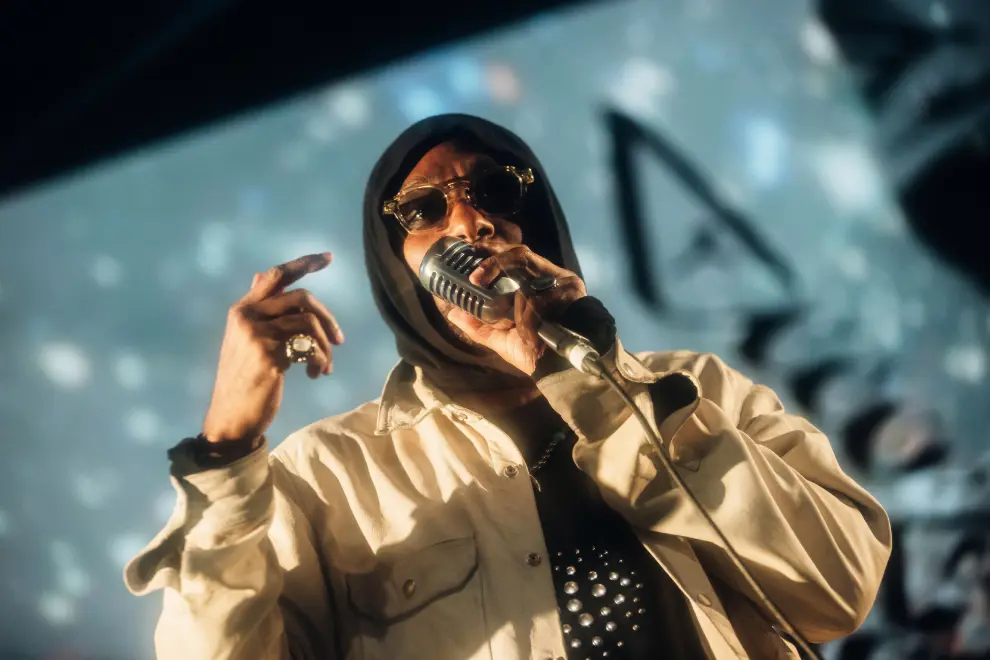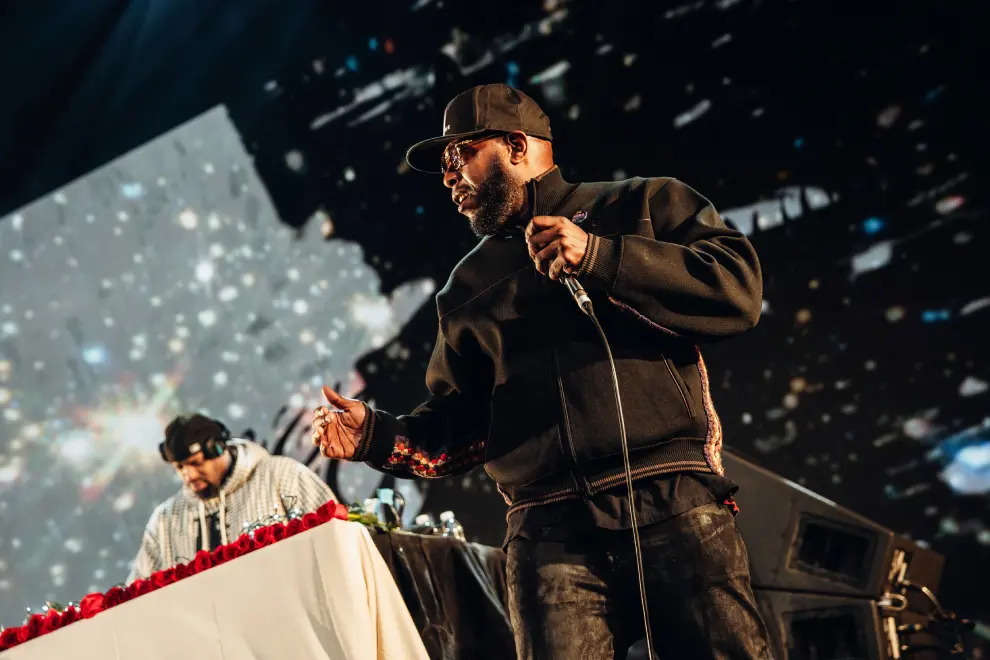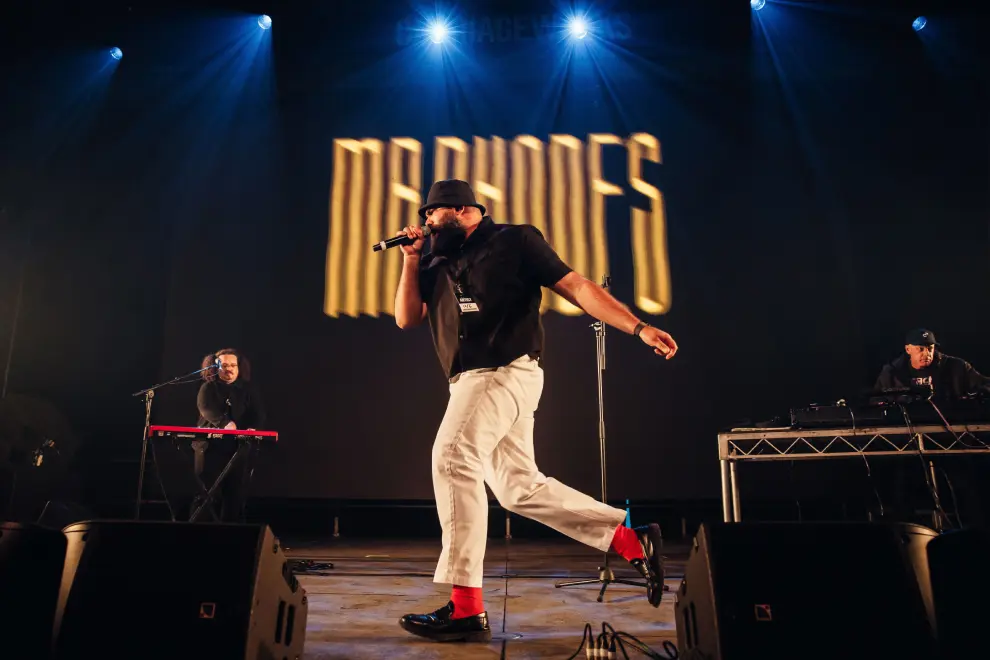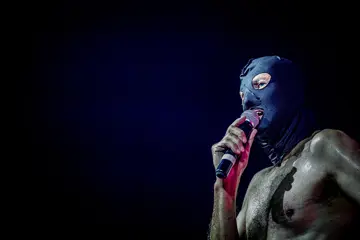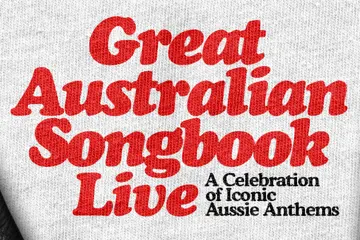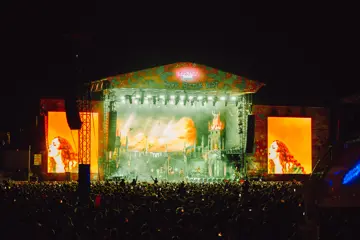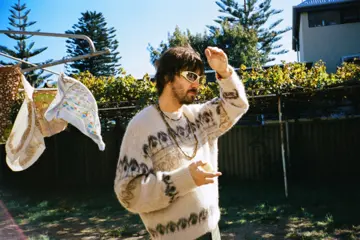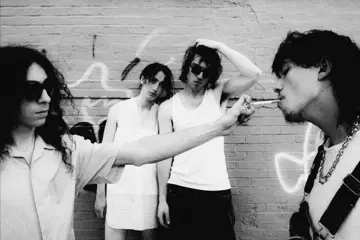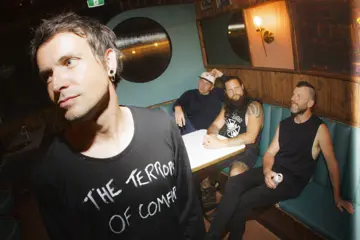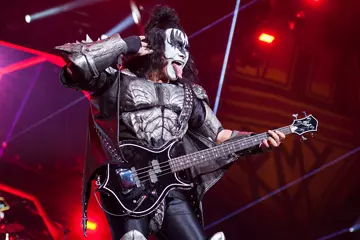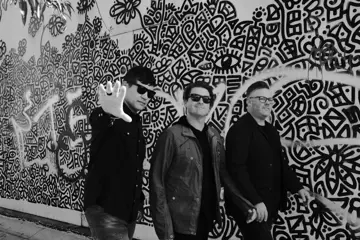Carriageworks, on a Tuesday night in the thick of a Sydney winter, was pulsing with the weight of history and the beat of something timeless. There was a chill in the air fusing the industrial and the atmospheric: appropriate, really, for a night with hip-hop icons Black Star, summoned to VIVID 2025.
The crowd filed into the concrete cathedral of Carriageworks with a sense of reverence, wrapped in puffer jackets and anticipation. When Yasiin Bey stepped out first, gently scattering rose petals across the stage to the hum of a Latin rhythm, it was clear: this would not be a standard-issue rap show. It was an invocation of ancestors, of artistry, of something sacred.
The sound exploded early, bass-heavy and booming, reverberating into a muddy echo across the cavernous walls. You could feel it in your sternum: a wet, sludgy low-end that made words blur and lights feel warmer than they were. But even as syllables occasionally drowned in the soup, the message was never lost, especially when Bey or Talib Kweli took the mic unaccompanied.
“Studio 54!” Bey called out, requesting the lights be dimmed and the strobes calmed. “Y’all can see us? Y’all can hear us?”
The answer was somewhere between a cheer and a plea. Moments later, he dropped into an a cappella version of So Be It, his voice cutting clean through the mix. Here, his power was undeniable: a masterclass in rhythm-as-weapon, language bent at impossible angles. “Land mine, mainline, your spine goes snap/ Vainglorious, phantasmagoria / Crack-panned all y’all?” The crowd stilled, awed into silence not by volume, but verbal virtuosity.
Don't miss a beat with our FREE daily newsletter
Kweli, ever the griot, carried the night’s energy with clarity and charisma. “Sydney, how are you feeling? Can you come with us to Queens, the Bronx, Staten Island, Manhattan… Brooklyn?!” he shouted. And we did. Despite the sonic murk, the duo managed to transport the entire room to New York.
They dipped into No Fear Of Time with the track o.G., Bey offering, “I want to thank you for helping me reach the understanding / That time is relative and the truth is everlasting.” Lines like that floated over the beat, buoyed by intention if not always sonic precision.
The set moved fluidly, if a little unpredictably, much like the minds behind it. There were nods to the past, as in What It Is from 2005’s The Beautiful Mixtape 2, which had the room chanting “They know, we know – what it is” in a messy but heartfelt call-and-response. DJ Big Von’s transitions stitched old and new with reverence and flair. A Sly Stone tribute slipped into a bass-drenched drop, and suddenly we were dancing again, even as our ears strained to decode the details.
There were gems throughout: the gorgeous syncopation of The Boogie Man Song, Kweli’s recollection of watching Bey freestyle over Khruangbin’s Maria Tambien (“The moon was like a lover’s whisper”), and a politically sharpened version of Knowledge Of Self that interpolated A Tribe Called Quest’s Check The Rhyme and threw daggers with rewritten lines like: “Fuck Elon Musk before they fuck Steve Bannon.”
But even the most politically charged bars were delivered with love at their core. “Give it up if you believe in love,” Bey intoned gently, before dedicating a song to “all the marginalised people from Palestine to Los Angeles.”
Nina Simone got a name-check and a cheer. So did mothers. So did truth. It’s hard to name another act with this much range; this much weight in the word “we.” Of course, everyone came together whenever they dived into their 1998 self-titled album, and cheers rang out as the crowd moved as one and mouthed the words in unison.
“Hip-hop stands on the shoulders of what came before,” Kweli reminded us, tipping his cap to the ancestors. Bey followed with a dedication to his mother and a quietly powerful track, Kijani, that closed with the line: “My honest answer is I like my chances.”
By the time they reached Respiration, the air was thick—not just with bass and breath but something heavier: the ache of understanding, the thrum of shared experience. And despite the technical issues—muddy mixes, the occasional lost syllable—it didn’t matter. Because Black Star isn’t just music. It’s a living archive. A communion. A reminder.
As the final lights flickered and the beat wound down into silence, there was a hush that lingered. The kind that says: we were here. We felt that. Even if we didn’t catch every word, the message was unmistakable. Razor-sharp lyricism, in a fog of low-end sound and whirring lights, still cuts deep.
Black Star, after all these years, still has it. In that thumping postindustrial echo chamber of Carriageworks, they still brought it.

